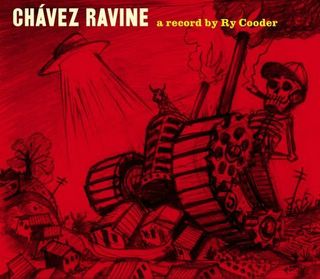The end of The Last Temptation
The end of a Dime-Store mystery
Lou Reed,
New York
Two links on the Chronicle of Higher Education's
ALD website have got me thinking deep thoughts.
This one comments on how the Men's Movement of the 90s has found a more fertile home in religious circles then it did in secular society. And
this book excerpt does a quick and thought-provoking analysis of how the public concept of marriage has changed throughout history.
These articles are related in their concerns, I think, since changes in marriage reflect to no small degree society’s changing concept of masculinity. But when I consider the articles in contrast to my situation, they seem to come from another planet. Through a series of choices and opportunities, I am the stay-home parent who provides the primary care for our two elementary school-aged daughters. My wife is the bread winner, whose job takes her across the pond(s) at least twice a year.
Here's a snapshot of our life: I am typing this on my laptop, just a few feet from our washing machine. When the washing machine reaches spin cycle, I'll put the laptop aside, get up and collect the water in pails, then use the laundry water to water our trees – a conservation tip I picked up from my mother, the summer we braced our back yard with a dozen evergreens. I'll hang the laundry to dry, then iron and fold. I'll also tend to basic house tidying, encourage my daughters' reading regimen, and monitor the emotional temperature of their day.
The last aspect is particularly demanding right now, because my wife is in India. She works for an international NGO devoted to providing physical rehabilitation to
the world's most impoverished people. Fix 'em up so they can live productive lives of dignity on their own terms. Right now she is visiting project sites overwhelmed with Tsunami casualties.
I am a Pastor's Kid; so is my wife. I've often said had I married anyone but another PK, my marriage would be a disaster. This always gets a laugh, but there's more truth than jest to it. The adult children of pastors usually fall into one of two categories – hell-raisers, or second generation pastors – and it's not unusual to see the next generation of pastor fall luridly from grace. On that note, it's worth remarking that my wife and I embody both manifestations, to a moderate degree that would cause little discomfort in most people. And if you want to argue that my wife's line of work qualifies as "ministry," knock yourself out. I won't disagree.
I've said before that my religious heritage (or my "walk with God", were I to use the vernacular I was raised in) is an intensely conflicted business. Lately I've been appreciating some of Augustine's stormier writings. This runs counter to my knee-jerk instincts. I've usually thought a person's religious beliefs should help them sleep at night; the consideration of divine paradoxes is something best done during daylight hours, not at nightfall – particularly after reading email from India. In the past, I've gleaned a greater comfort from the writings of Camus than I have from his more church-friendly forbears, particularly Kierkegaard. Adding to this irony is the fact that they are both within ideological spitting-range of the last century's most notorious PK, Friedrich Nietzsche.
There’s another snapshot for you: the sort of intellectual loop-de-loops a PK will go through when giving voice to his own faith concepts. It’s a trait some of us develop quite early in life. Revealing my father's occupation to a potential friend has always been a provocative proposition, sometimes moreso as an adult. The older I get, the more atheist friends I seem to collect. I've always appreciated, even admired the moral framework they've formulated. They've worked hard at it, and often demonstrate a greater fealty to their standards than I do to mine. I give them the benefit of the doubt, in other words – a favor not often returned, particularly when we talk of my father's profession (with one precious exception, I should say).
Ah yes, but atheists who doubt the social value of the church pastor are hardly alone – they merely sing a subtle harmony to an ever-present chorus of disenchanted parishioners. It's true I never heard the outright complaints first-hand, with two slight exceptions I’ll get to later. And my parents were perhaps private to a fault when it came to mention of church politics in front of the children. But as an adult taking part in the community life of different congregations, it didn't take me long to discover this never-absent congregational contingent. I can do the math; I have no doubt my father had his detractors.
Most pastoral careers rise and fall on the ability to "preach the Word." In this field, my father garners general kudos. In our rural town in the early 60s, he was somewhat unusual, having earned an M.Th. (Westminster) before stepping up to the pulpit. He gave consideration to his words, and took care when articulating any theological concept somewhat out-of-step with generations of received Mennonite teaching. More than once I heard him express excitement when he was told of a remedial Bible study held by a group who disagreed with him – it meant they had been engaged, and he was quick to give them a public platform.
The qualities that made my father well-suited for his job, however, weren't usually required for Sunday mornings. The majority of pastoral work is private, and unspectacular: meetings of every stripe, many of them harboring resentments that have simmered for years, sometimes generations; visiting the sick and the elderly; counseling, and of course weddings and funerals. I remember asking my father if he'd seen anyone die. "Oh, sure," he said matter-of-factly, as if it were a weekly occurrence. Then he described the process in terms that were reassuringly gentle. I was five years old, and grateful to hear it wasn't quite so terrible as I'd imagined. And if the occurrence wasn't exactly weekly (or as easy to bear as my father made it out to be), it certainly happened several times in any given year.
He also dealt with situations slightly outside the purview of most contemporary ministers. I recall a night in the early 70s when he received a phone-call from a parishioner. She was married to a drunkard, who was in the habit of getting their oldest daughter to mix his drinks. Now he'd locked his wife out of the house, and was forcing the daughter into bed with him. The police had been called, but for whatever reason our small-town constabulary was keeping the affair at arm's length, and proved slow to respond. My father was a committed pacifist, but didn't hesitate. He called up a deacon, asked for support, then drove directly to the house to physically extricate the girl from this hellish scene. The police arrived nearly half-an-hour later.
Having said all this, it pains me to locate and confess the locus of my discomfort with my father's profession. I can sum it up in one ridiculous word: masculinity.
I’m not at all sure where my confusion first took hold, and I see little point in teasing it out. No-one took me aside and said, “Real men don’t get a fancy-pants education and become pastors.” I did, however, on two separate occasions overhear doubts expressed about my father’s academic pursuits (he eventually earned a doctorate). That’s the trouble with a religion that advertises itself as accessible to all: not only can any enthusiast with a little Bible-reading under his belt claim to be an authority, but higher learning in general is viewed as yet another worldly impediment to the Kingdom of Christ. No matter – the two men in question were eventually reduced to our common fate: teary invalids in a hospital bed, awaiting their solitary end. And my father did what he could to provide comfort for them both.
The current round of masculinity talk being generated in North American evangelicalism is nothing new – they’ve recycled this bullshit for generations. Read any book, attend any seminar, and just try to count how many times the word “authority” comes up.
“Leadership” is also popular; "Vision Casting", etc, etc. In my limited experience, the healthiest congregations are ones where everyone – men, women, children – feels heard. The pastor moderates discussion, exercises humility by hearing everyone out, exhorts, encourages and does a little teaching. And rather than enforcing a personal agenda, he finally submits to the will of the congregation.
“Submit” – there’s another word you’ll hear in these men’s groups. As in, “Wives, submit to your husbands” (Colossians 3:18).
Ah, those Promise Keepers! My father told me about a meeting he attended, ten years ago. A parishioner was keen on the Promise Keepers, and drove him to some mega-event in a California stadium. This was a weekend deal, and on the last day, last meeting, the keynote speaker leaned toward the mic and said, "I want all the pastors to come to the front, please."
My old man was game. He got up out of his seat and found his way to the front, along with several hundred other men. The keynote speaker leaned once again into the mic and said, "These are your men of God. They have made sacrifices you couldn't begin to enumerate.
Gentlemen, it behooves you to stand, and to give these men a hand."
And so my father found himself in this "Where's Waldo?" scene, receiving an enormous standing ovation, along with several hundred other men.
I asked him what he thought. He shrugged. "It was nice, I guess. But there were guys half my age, standing there and just
weeping. Clearly, it really spoke to them."
Was there anything about the meeting that spoke to him?
"Actually, yes," he said. "The first day, come lunch-time, the concessionaires were obviously overwhelmed. People swarming the counter, by the thousands. And for some reason, hot-dogs were easier to serve than hamburgers – a guy in the back of the line could order a hotdog, and it would be ready. So he would pass the money forward, and it would get to the server, and the hotdog and change would get passed back to him. The concessionaires said they'd never seen anything like it before.
That spoke to me."
Hotdogs, wedding vows, deathbeds.... Ladies and Gentlemen, here's what my father taught me:
Masculinity = Earned Trust.





